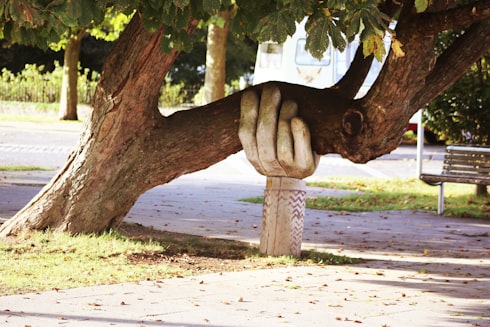
For a research project, a colleague and I have been collecting helping experiences, memorable ways that someone helped them. When asking them to recount their helping story, we included an extra question to make sure our survey was working properly. (This is a common step in survey-based research.) It was an open-ended question inviting feedback on how it went. To our surprise, we saw a sizable group of people leaving comments like these:
“I enjoyed reflecting on a beautiful time in my life and sharing it with you all.”
“I enjoyed this survey because I got to look back fondly on a good memory.”
“It was nice to remember this experience since it was so positive.”
“I liked this survey because it was nice to remember this past event. My grandmother was very supportive of me, and she's been gone 3 years now, so thanks for the memories!”
You probably have similar feelings when you remember a helping story of your own. We tend to recall these experiences with fondness and gratitude. The memory remains with us precisely because we treasure it.
Moral Beauty
But there’s something more at work. This memory is meaningful to you thanks to a phenomenon called Moral Beauty.
For many centuries, philosophers have talked about the connection between moral goodness and beauty. Aristotle argued that the purpose of virtue was ”for the sake of the beautiful.” As scholar and Aristotle translator Joe Sachs put it, “What the person of good character loves with right desire and thinks of as an end with right reason must first be perceived as beautiful.”
Immanuel Kant saw a connection between our ability to appreciate beautiful things and to admire moral actions. He called tenderheartedness “beautiful and lovable,” even if it might lead us at times into poor decisions. True virtue, though, is more than just beautiful; it is sublime. And our appreciation of it comes from a feeling all of us have, a "feeling of the beauty and the dignity of human nature.”
What they and others have recognized is that we all value the feeling we get when seeing goodness between people. Kindness, generosity, selflessness, and sacrifice are beautiful to us. Appreciating those acts of goodness feels like the moments of awe we feel at seeing a mountain vista or a work of art.
Elevation and Kama Muta
More recently, psychologists have studied this feeling we get from seeing moral beauty, a feeling they call elevation. Empirically, people don’t all have the same sensitivity to moral beauty, even though most everyone can feel it. Women experience it more than men, for example. And people who are more easily elevated are also more “grateful, caring, empathetic, agreeable, and forgiving.”
Elevation exists in every culture and political belief. In his global study of awe-inspiring experiences, the psychologist Dacher Keltner found that appreciation of moral beauty is the most common experience of beauty that people have. Over 95% of those experiences involved seeing someone act to the benefit of someone else.
When that feeling of elevation is especially powerful, it becomes something that scholars call Kama Muta, a Sanscrit-derived term that means “moved by love.” If you’ve seen an act of such generosity that made you feel warmth in your chest, a lump in your throat, tears in your eyes, and other buoyant feelings, then you’ve experienced Kama Muta. That moment probably also drew you closer to others so that you felt more connected, even to total strangers. Kama Muta, like elevation more broadly, is also a universal human experience.
Seeking Elevation
Elevation is such a sure thing, that acts of kindness define entire social media businesses. A day doesn’t go by on Instagram or TikTok without seeing a viral video of a man rescuing a scared and stranded dog or an adult daughter who traveled hundreds of miles for a surprise reunion with her mother. The most watched account on YouTube is run by Jimmy Donaldson, aka Mr. Beast. Starting out first as a Minecraft streamer, Mr. Beast became famous for filming huge acts of generosity, like the time he took over a used car dealership and gave a free car to every customer that walked in.
At BYU, the university where I teach, a Master’s student named Savannah Rebecca Bagley named this phenomenon when she wrote her thesis about the “Altruistic Influencer.” In it, she analyzes the work of Hank and John Green, a pair also known as the Vlogbrothers. The two have built a massive online community called Nerdfighteria that has collectively raised tens of millions of dollars for various charitable causes around the world.
You’ll also notice across all of this discussion of moral beauty that large and small acts of helping elevate us. We’re touched by a teenager thoughtful enough to help an elderly woman with her groceries. We’re moved by a teenager who risks his life to rescue a child from floodwaters. Both acts are beautiful to us, along with a wide range of other helping experiences.
Lastly, elevation does more than feel good. It inspires us. In a wide range of studies, elevation is typically followed by a desire to help other people and to be a better person. In other words, helping is contagious. Moral beauty doesn’t just give us moments of awe, it turns us into more generous people.


